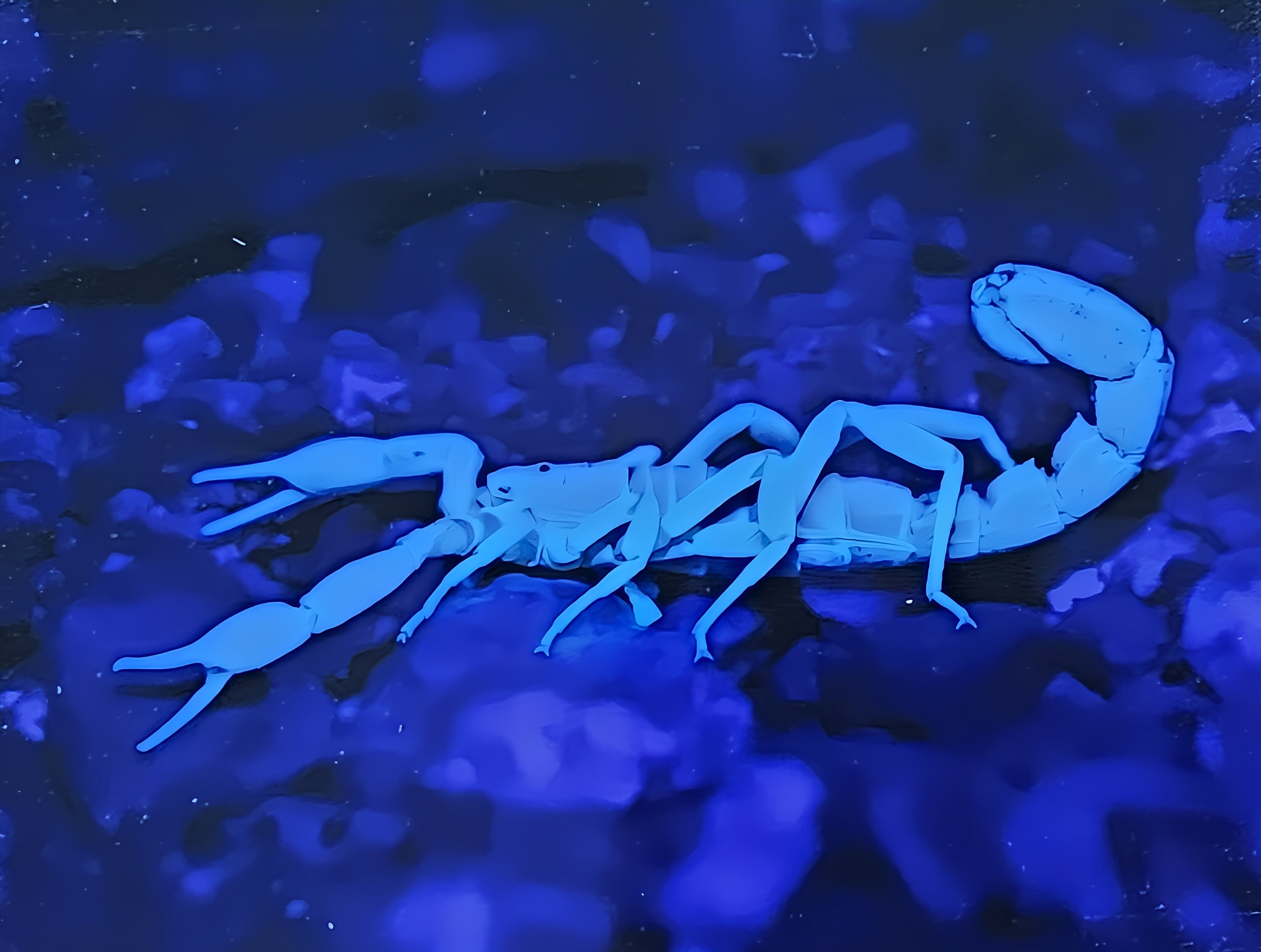March is in the air! The sun is shining brighter than ever, 90 degree temps are returning and with it comes nature's emerging night life scene. Sleepin all day, staying up alll niiighhtt ~ let's discuss one of the desert's most popular night time party animals- the scorpion. Often encountered both outside and within the home, the scorpion is one of Arizona's most feared pests. It can be difficult to navigate fact from fiction with these arthropods. Understanding the scorpion can help to keep fears at bay and victims of scorpion stings from panicking post sting (which by the way exacerbates symptoms).
DID YOU KNOW there are over 100 species of scorpions within the United States? Every one of these scorpions is capable of regulating the amount of venom that is injected with a sting, and often does so purposefully. Since these creatures, like all venomous creatures, take time to replenish their supply of venom, they typically only excrete a small amount of venom during a single sting. In fact, less than 5% of scoprion stings actually require medical attention each year and only ONE species of the 100 scorpions found in the US, possesses venom capable of causing human fatality- the Arizona Bark Scorpion.
Contrast to popular belief, scorpions do not bite, they inflict a sting with a venom barb at the end of their tail, much like a bee or wasp does with it's stinger. They do not have teeth and rarely engage claws in defense. Stings usually don't leave a mark and are most identifiable by the burning sensation, later followed by numbness and tingling. You may enounter swelling, symptoms are increased for those who are allergic to the scorpion venom. While the Arizona Bark Scoprion is the "most dangerous" of the species found here, they are the smallest species in Arizona, rarely found to be bigger than a nickel. Their danger effect is due to a neurotoxin relased with the venom that can cause uncontrollable muscle movements.
Many people believe scorpions are aggessive. However, these little critters spend the majority of the day time hiding from UV rays, birds and other desert animals, beneath rocks and debris. They only emerge at night to feed, explore & find a mate, sticking closer to shelter and do not aggressively pursue large animals or humans. Almost all human and pet stings occur in defense, when the scropion is stepped on or taken by suprise with physical contact and can be avoided by wearing proper footwear and never reaching into debris piles, beneath rocks or into storage bins and boxes from sheds and garages with bare hands.
Fun Facts:
- Scorpions do not hatch from eggs. A female gives birth to them. She even carries them on her back until they can survive on their own. They do historically show maternal instinct
- Scoprions eat other insects - stingers are used to paralyze prey (which can be helpful pest control in home)
- Scorpions are located on every continent except for Antarctica. They prefer habitat with overgrown vegetation
- Scorpions glow in the dark under UV light. They glow a fluorescent blue-green, due to an interaction between UV light and a substance in their hyalen layers of the exoskeleton
- Scorpions have existed over 400 millions years (This means they pre-date dinosaurs!)
- Scorpions survive extreme conditions, including heat and freezing temps
- Scorpions breathe through their bellys via book lungs
- **Emergent self defense - A scorpion CAN detach it's tail in an attack, but it will never grow it back!
- Scoprions preform a coursthip dance called the "promenade a deux", grasping pincers & moving in a circle to woo one another
- Scorpions can survive nuclear radiation
Ways to Protect Yourself from Scorpions
- Seal Entry Points - close gaps in doors, windows and walls
- Declutter - remove clothing piles, boxes and hiding spots
- Natural Repellents Help - cedar, lavender, citrus and diatomaceous earth are known to deter
- Inspect Bed and Shoes- ALWAYS before climbing in and putting on
- Keep Yard Clean- trim vegetation, keep branches from touching your house, remove woodpiles, rocks and debris, control other insects they feed on
- Wear Protective Clothing - boots, shoes, slippers, gloves, long sleeves and pants when hiking, doing yard work, moving storage boxes, during nightly bathroom trips, etc. You can even buy shoes for pets
- Use a UV Flashlight to naviate at night
If you're running into scorpions around your home or business, Western Exterminators can help. Contact them at 888-989-5196
Scorpions may have fierce reputations but they are truly remarkable creatures that showcase nature's resilience and adaptabilty. From ancient origins, to their unique survival skills and fascinating courtship dances, they still play a vital role in controlling insect populations and are a symbol of strength and mystery. Rather than fearing them, we can take appropriate measures to protect from unexpected encounters and appreciate scorpions as one of nature's most intriguing and misunderstood creatures, with its own story to tell under the moon lit sky.

